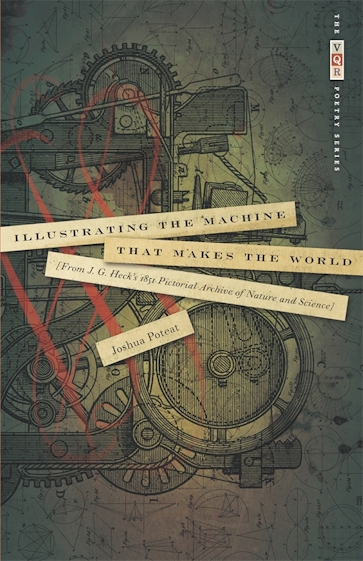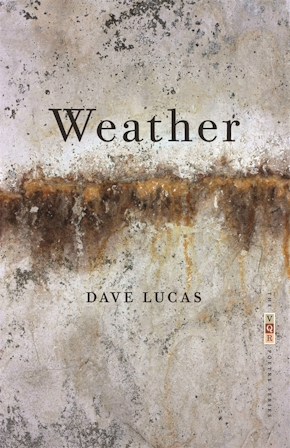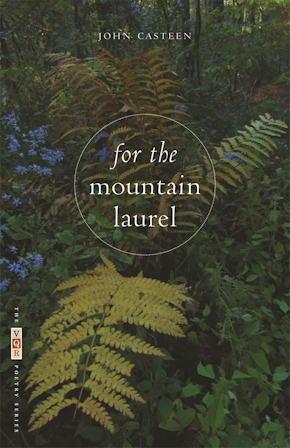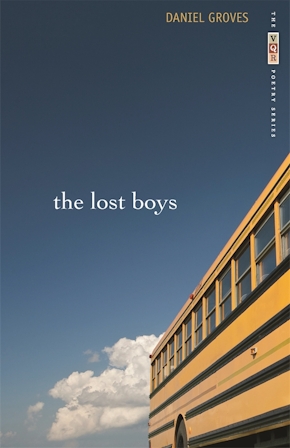Illustrating the Machine That Makes the World
From J. G. Heck's 1851 Pictorial Archive of Nature and Science
Title Details
Pages: 88
Trim size: 5.500in x 8.500in
Formats
Paperback
Pub Date: 11/01/2009
ISBN: 9-780-8203-3414-1
List Price: $20.95
Series
Related Subjects
Illustrating the Machine That Makes the World
From J. G. Heck's 1851 Pictorial Archive of Nature and Science
Skip to
- Description
- Reviews
In this book-length series, poems with titles such as “Illustrating the theory of interference” and “Illustrating the construction of railroads” are paired with nineteenth-century engravings depicting phenomena from geology to astronomy to mechanics. Yet the poems relate to the images in an oblique rather than a direct way. Poteat uses this framework to construct a mysterious and engaging book that inhabits many worlds at once, bridging the real and the imagined, the traditional and the experimental, the surreal and the ordinary.
As each diagram and scene gives rise to a poem that intertwines the life of German artist and printer J. G. Heck—imagined, as little is recorded—with Poteat’s own, the book reveals a preoccupation with landscape that encompasses both the precision of Heck’s carefully labeled sine waves and brass devices as well as the eeriness of his depictions of skeletal hands or dogs tearing apart a wounded boar. Poteat’s intense interest in the natural world is set against a sense of a world behind the world, where each living thing is properly named and the Spirit glows purposefully above the forest, ready to heal if asked in the correct manner.
From “Illustrating how to catch and manufacture ghosts”: Tonight there is no wind. Even the heat / is on its knees, and the moths laying eggs / on the side door are not being honest / with themselves. Though their enterprise / is beauty, the eggs will not last through / the rains, and so it goes. / A slug, fresh as cinnamon, steps through / the snuffed coals of my stove.
His first collection, Ornithologies, charted a lyric landscape of birth and memory, which is to say, nostalgia. . . . Illustrating the Machine is a very different journey, into the imagined world of the eponymous text. What makes it so seductive, and so satisfying, is that Poteat—the lyric intelligence behind these haunting, often spectacularly beautiful poems—never quite leaves that earlier world behind.
—Pleiades
A fearless and beautiful use of language, purely original and fiercely rooted in nature and the web the organic world forms with memory, emotion and the deepest part of ourselves — when we let it.
—Style Weekly
I find Joshua Poteat's poetry as moving as any being written today. His first collection, Ornithologies, was wise and piercing and beautiful, and Illustrating the Machine That Makes the World is every bit its equal. From the illustrations and inquiries of the book's opening pages, haunted by change and loss and the mysterious enterprises of every living creature, to the playful vanishing act of its final section, Poteat pays heed to literature's oldest and greatest calling: to tell the truth about things.
—Kevin Brockmeier, author of The View from the Seventh Layer
Joshua Poteat’s new collection is a brilliant, unsettling, unclassifiable, and consummately strange sequence. Poteat possesses something of Joseph Cornell’s zeal to reconfigure but enshrine the ephemeral, and to make from the odd detritus of the past works that are at once exhilarating and elegiac. When we open Poteat’s Cabinet of Wonders, we encounter the work of a true original.
—David Wojahn, author of Interrogation Palace
Poteat’s book, a fascinating and ambitious project, succeeds—arguably like the best literature—in not only catching hold of us through a beautiful and skillful use of language, but through depicting, even creating, a possibility of redemption.
—Blackbird



